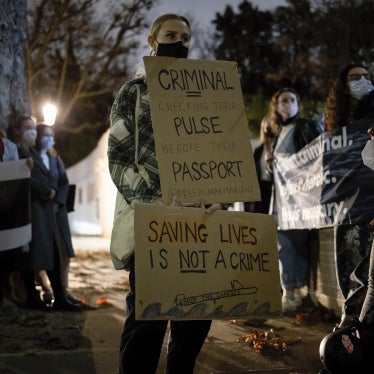Who decides what should be shown in Russian theaters these days? If you think it should be artists and their audience, prosecutors in the Siberian city of Novosibirsk beg to differ.
After days of court drama worthy of a theater production itself, a Novosibirsk court today dropped administrative charges against Timofey Kuliabin, who is directing a production of Richard Wagner’s “Tannhäuser” at the Novosibirsk State Opera and Ballet Theater, and Boris Mezdrich, the head of the theater. Both were charged with intentional public desecration of objects of religious worship, punishable by a hefty fine or up to 120 hours of community service. The court ruled that the two men did not violate Russian law.
Despite the ruling, it says something about Russia today that the case even went this far. And it says even more that, according to Russian media reports, the pair are being investigated in a separate criminal case on charges of “insulting religious feelings of believers,” a provision introduced a year after the trial of three Pussy Riot band members in 2012.
The case started two months after the opera premiered in December 2014, when a senior Russian Orthodox Church official filed a complaint with the prosecutor’s office about the production, in which he accused the opera director of “disrespect to society” and “insulting religious feelings of believers.” He reportedly said he didn’t see the opera but received complaints from individuals who had found it offensive. Kuliabin’s production portrays Jesus Christ living as a sinner during an unknown period of his life and features a poster of a man in a crucified positon (without the cross) between a woman’s legs. The prosecutor’s office had asked the court to order the removal of “Tannhäuser” from the theater’s repertoire.
Artistic expression is protected under Article 10 of the European Convention of Human Rights. Member states are obliged to abstain from unnecessarily restricting freedom of expression, including artistic expression.
The authorities should immediately drop their investigation of possible criminal charges against Mezdrich and Kuliabin. Russian people should be able to discuss the artistic merits of “Tannhäuser.” But this discussion should be through open public debate and does not belong in the courtroom. By using the law meant to prosecute infringements on religious freedom, the authorities send an unambiguous message that any Russian artist can be targeted if their creative work rubs someone the wrong way.







